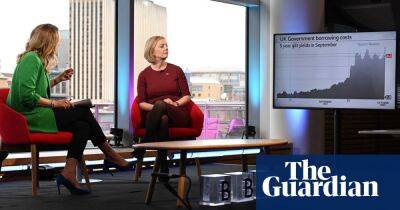Not going out: how the cost of living crisis is destroying young people’s social lives
When Beth thinks back to her pre-pandemic life, it feels almost unrecognisable. Between dinner parties, cinema trips, Sunday brunches and takeaways at friends’ houses, the 28-year-old NHS nurse from the east Midlands usually had a calendar brimming with plans. That changed starkly with Covid-19 but, just as restrictions eased up, the cost of living crisis began to bite. Beth’s finances have been so squeezed, she sees friends only once or twice a month.
Partly, this is down to the extra shifts Beth has taken to cover her rocketing energy bills and the £530-a-month mortgage on her one-bedroom flat, where she lives alone. But even when she isn’t working, she is often forced to turn down invitations, as socialising becomes increasingly unaffordable.
Consequently, friendships have become difficult to navigate, as she has to be a lot more selective about whom she spends time – and money – with. “I try to see those friends that would understand if I just order a starter or cancel last minute due to finances, as it’s embarrassing,” she says. She worries that less sympathetic friends think she’s just making up an excuse for dropping out of plans. “Eventually, the more you say no, the more people stop inviting you to things.
“The one thing that helps in a job like ours is blowing off steam, but I’m now stopping socialising where necessary, whether it be meeting a friend because I have to save my fuel for getting to work or not being able to go out for dinner,” she says. “I had to make sacrifices to own my flat and now it’s getting harder to keep.”
Beth adds that her work has been suffering. “If I felt like I was valued more at work, and that it was allowing me to have proper rest and fun, then I would work more effectively.”
The real
Read more on theguardian.com


















